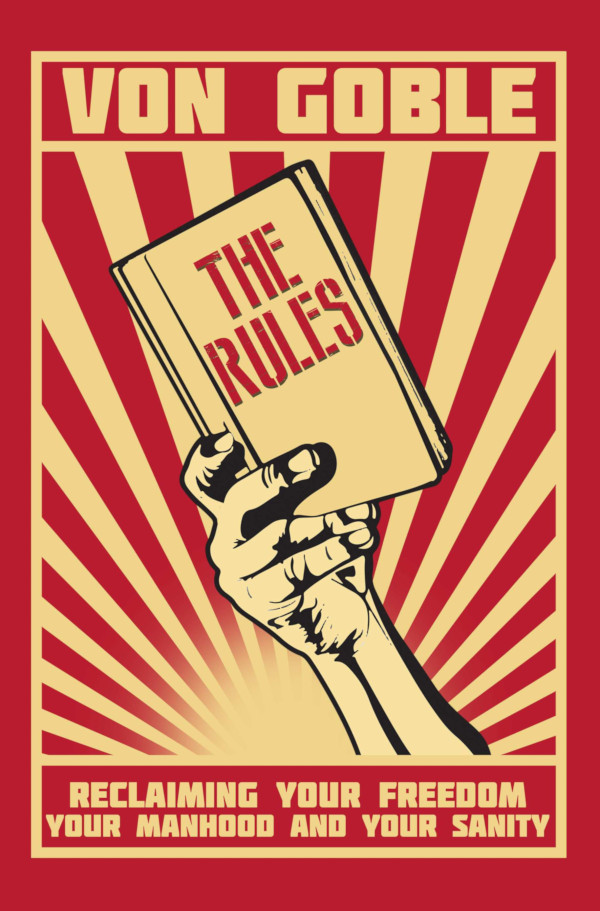Showing compassion to those who have made bad decisions does not require that we allow them to profit at the taxpayer’s expense.
Over the last year, calls for mass forgiveness of student loans have grown louder. While this debt is a burden that affects millions of Americans, outright loan forgiveness is both profoundly unfair to the taxpayer and to all who have dutifully honored their financial obligations.
I agree with the argument that the current loan system is flawed and in need of reform, and I also understand that some people are simply unable to repay their loans and will remain forever in that condition.

So what is to be done?
I propose that the bankruptcy code be rewritten so that government-backed student loans are more easily dischargeable under Chapter 7. This can be done in such a way that people who need debt relief are neither enriched nor abused by the legal process. Here are the specific conditions I advocate be added to 11 U.S.C. § 7:
(a) Any person who has more than 50% of his/her government-backed student debt discharged shall:
(1) be forever barred from receiving additional government-backed student loans;
(2) surrender all credentials, proof of academic completion, professional licenses dependent upon formal education (medical licenses, legal licenses, teaching licenses, nursing licenses, etc.), and academic titles and honors;
(3) agree to refrain from using any academic pre- or post-nominal (Ph.D., J.D., M.D., etc.) for professional purposes, with the understanding that he/she may be held in contempt of court for using such titles for economic gain;
(4) surrender completely and without restriction all intellectual property created in the course of completing his/her degree (including dissertations, theses, research documents, patents, audio or video recordings, etc.) to the United States Department of Education, which shall assume ownership of said intellectual property.
(b) Upon notification of any student or former student having had more than 50% of his/her government-backed student debt discharged, any higher educational institution eligible to receive Title IV funds shall:
(1) delete or otherwise destroy the academic and behavioral transcripts of said student;
(2) remove said student from all alumni/graduate lists;
(3) immediately transfer copies of any intellectual property created by the student in the course of completing his/her degree to the United States Department of Education.
(c) If intellectual property created by the person who is seeking to have more than 50% of his/her government-backed student debt discharged is found by the court to be a joint creation of that person and another person or entity, the court shall determine what portion, section, or percentage of that property was created by the bankrupt person and shall order that share of the property interest transferred to the United States Department of Education, with the rights of the remaining intellectual property holders being unaffected.
These simple additions to 11 U.S.C. § 7 would allow for the legitimately overburdened to be free of crushing debt while discouraging anyone who would seek to engorge himself (or herself) at the expense of the taxpayer.

Finally, I advocate that student loan debt restructuring be facilitated under 11 U.S.C. § 13, with the following simple additions to the law:
(a) that any person who seeks relief under 11 U.S.C. § 13 for student loan debt agree to pay at least 50% of his/her disposable income to the relevant creditors either until the loan is completely repaid or for a period of ten years (whichever is shorter);
(b) that any person who seeks relief under 11 U.S.C. § 13 for student loan debt agree to perform at least 15 hours of unpaid national service per week, of a type to be determined by the court, for a period of ten years or until the debt is fully repaid (whichever is shorter).
I invite readers to consider this proposal. If they find it to be reasonable, they should feel free to copy all (or part) of this document into a letter directed to the appropriate officials.


The Rules
The Rules is a philosophy and self-inquiry text designed to help readers develop mental discipline and set life goals. It does this by way of guided readings and open-ended questions that facilitate the rational and systematic application of each Rule.
Put another way: The Rules is a book designed to help men survive and thrive in the West.
Foresight (And Other Stories)
Four tales across time and distance. Always satirical and frequently dark, this collection considers the breadth of isolation and the depth of connection.
Brant von Goble is a writer, editor, publisher, researcher, teacher, musician, juggler, and amateur radio operator.
He is the author of several books and articles of both the academic and non-academic variety. He owns and operates the book publishing company Loosey Goosey Press.









What is the point of this screed?
We have a possibly stolen election, laws that are selectively applied, an administration in power that will spend hundreds of billions if not trillions on endless wars (that Trump wisely avoided and tried to remove us from), a new imposition of racism in the Federal Government (racial equity policies), calls by major politicians to criminalize or otherwise prosecute dissent, a press worthy of Pravda, a financial system on the verge of collapse again (due to bubbles), the suppression of conservative speech, and many other important problems, not to mention a Federal Government that is basically printing money and spending it on everything BUT the people of this country, all the while trying to replace national labor with foreign labor for the big lobbyists via the H1B programs and the basically “open borders” policies of the new adminsitration and your big problem is…student loan debt forgiveness? This is what keeps you up at night and you think is such a big moral problem that we have to make sure that no one would dare ‘take advantage of the taxpayers’ by punishing people who went to school (as everyone has been told to do for 30 or 40 years now) and couldn’t -for whatever reason- pay their loans off? It’s not like these things are ‘interest free’ ya know. I scratch my head at someone with seemingly such out of whack priorities. Even if things were ‘normal’ I’d think your ‘solution’ was overtly punitive, but things are far, far from normal.
Did you ever stop to consider that millions of Americans, of average intelligence, up to their eyeballs in non-dischargeable debt, are a major factor in the problems you cite? These people form the core of the radical Left’s support.
There is no perfect society. Most have a great many defects. Crime, pollution, corruption, disease, immigration, foreign policy, and education—All of these warrant our attention.
We can ameliorate more than one problem at a time. Dedicating some energy and mental effort to the crisis of higher education debt does not necessitate abandoning other concerns. And student debt in the United States of America tops 1.6 trillion dollars—hardly a trivial sum or one unworthy of a bit of discussion, legislation, and introspection.
As to requiring that students surrender their credentials, I believe you may have missed the mark in your analysis. Bankruptcy law is founded on the notion of providing relief to those who cannot repay their debts, without encouraging bad behavior, reckless spending, or abuse of process. Those who go through Chapter 7 bankruptcy are already required to surrender many of their excess possessions, which are then sold or directly returned to the lender (in the case of secured debt).
The purpose of this forfeit is to help make the lender whole. In this regard, the bankruptcy court is functioning somewhat like a court of equity. My proposal stays true to this tradition, particularly in that it would force the relinquishment of any intellectual property to the creditor—in this case, the citizens of the United States, by way of the U.S. Department of Education. We, the American people, have a fair right to the art and invention created with our money, as creditors generally do.
You also seem to overlook the role of student debt and higher education in causing the problems we presently face. Student loans are a great burden on many young people, and they distort the entire economy. For instance, crushing amounts of student debt are at least partially responsible for delays in home buying amongst those under 35. And let us not forget the centrality of unrestricted lending in promoting inflation within a market—The 2008 housing crisis was not caused by too many savers all finally deciding to buy starter homes with money they had long kept in their passbook accounts. The parallels to our higher education bubble should be obvious.
Additionally, the ideological influence of higher education institutions is at the heart of many of the social troubles you describe.
Money is dumped on our campuses by way of student loans. What sort of indoctrination do our students receive there? The last time I checked, there was not much in way of pro-American, pro-Western culture, and pro-fiscal responsibility argument being taught at our institutions of (allegedly) higher learning.
As for allowing the discharge of student debt without any repercussions, what effect would this have upon our nation? For decades, college has been perceived by a significant number of our young people as a government-sponsored vacation. If we allow graduates off the hook with nothing sterner than a scowl, we will only encourage even more of the underqualified to sign up for a four-year party.
Next, we turn to the ideology responsible for the suppression of your beloved free speech: The more every dullard with a pulse thinks signing up for a tour at Intersectionality U. is a great use of (our) money, the sooner you can expect to see anyone to the right of Pol Pot driven underground. Strong students may be able to identify inconsistencies in extremist arguments and counter them. Weaker students, particularly those inclined to suck from the government teat until in their mid-twenties, will drink up the milk of revolution without a second thought.
Forgive student loans freely, and you will be paying for this meal. And a banquet of consequences as well.
Finally, there is the matter of unjust enrichment and punitive policies. My proposal demands the surrender of credentials, titles, and paperwork. It does nothing to take whatever knowledge students acquire at school from them. Under my plan, a student might well still receive a free education and subsidized lifestyle at the taxpayers’ expense. Only the ornamentation is seized.
If the sole value of higher education is in the rubber stamp and the pomp and circumstance, it is a waste, at least on a societal level.
Yet the current model is unsustainable. You are right insofar that every Tom, Dick, Harry, Bob, Bill, Jane, and Mary is prodded to attend college. This is moronic, perverse, and indefensibly cruel to those who stand to gain no more from higher education than debt, a Weltanschauung that says that only the last should be first (and the first should always be last), and an unrealistic sense of self-worth.
I directly address two of these problems. My model legislation would extinguish the student debt of those in need, and It would provide a gentle lesson in humility. And if a degree has economic value insufficient to pay for itself, the person seeking relief still comes out ahead—the debt relief is of greater value than the fancy parchment.
Regarding the Weltanschauung—my proposal only indirectly speaks to that, but indirectly speaking to a problem is likely better than doing nothing at all. By demonstrating to would-be students that the pursuit of a degree in anti-colonialist, postmodern, feminist basket deconstruction will lead to little more than wasted time, anxiety, and a clutch of untestable social theories (without so much as a fancy title for one’s troubles), we may save these poor souls a world of grief and confusion.
I’m going to chime in with what I believe is the crucial takeaway from the topic of student loans vs. bankruptcy, and Brant’s proposal to fix the system. Loans are in general based on the notion of collateral, which is easy because people generally borrow money for physical or at least tangible items. This is important because that item is simultaneously the motivation for taking out a loan and serves as collateral if the borrower is unable to make payments. House, car, even a business start-up.
Bankruptcy the wrecked credit score that accompanies it sucks, but is a hell of a lot better than crippling debt. So it does seem, and is to some extent, predatory to deny students that option for their school loans. However, this feature of the system isn’t insane or meritless. What is the collateral for student loans? There is none. That is a problem that I agree Brant’s proposal might partially fix, even if it’s in a somewhat abstract sense of rescinding the credentials granted by the degree.
What is the point of this screed? We have a possibly stolen election, laws that are selectively applied, an administration in power that will spend hundreds of billions if not trillions on endless wars (that Trump wisely avoided and tried to remove us from), a new imposition of racism in the Federal Government (racial equity policies), calls by major politicians to criminalize or otherwise prosecute dissent, a press worthy of Pravda, a financial system on the verge of collapse again (due to bubbles), the suppression of conservative speech, and many other important problems, not to mention a Federal Government that is basically printing money and spending it on everything BUT the people of this country, all the while trying to replace national labor with foreign labor for the big lobbyists via the H1B programs and the basically "open borders" policies of the new adminsitration and your big problem is…student loan debt forgiveness? This is what keeps you up at night and you think is such a big moral problem that we have to make sure that no one would dare 'take advantage of the taxpayers' by punishing people who went to school (as everyone has been told to do for 30 or 40 years now) and couldn't -for whatever reason- pay their loans off? It's not like these things are 'interest free' ya know. I scratch my head at someone with seemingly such out of whack priorities. Even if things were 'normal' I'd think your 'solution' was overtly punitive, but things are far, far from normal.
I agree with this 100% wholeheartedly!
I agree with this 100% wholeheartedly!
Did you ever stop to consider that millions of Americans, of average intelligence, up to their eyeballs in non-dischargeable debt, are a major factor in the problems you cite? These people form the core of the radical Left's support.
There is no perfect society. Most have a great many defects. Crime, pollution, corruption, disease, immigration, foreign policy, and education—All of these warrant our attention. We can ameliorate more than one problem at a time. Dedicating some energy and mental effort to the crisis of higher education debt does not necessitate abandoning other concerns. And student debt in the United States of America tops 1.6 trillion dollars—hardly a trivial sum or one unworthy of a bit of discussion, legislation, and introspection. As to requiring that students surrender their credentials, I believe you may have missed the mark in your analysis. Bankruptcy law is founded on the notion of providing relief to those who cannot repay their debts, without encouraging bad behavior, reckless spending, or abuse of process. Those who go through Chapter 7 bankruptcy are already required to surrender many of their excess possessions, which are then sold or directly returned to the lender (in the case of secured debt). The purpose of this forfeit is to help make the lender whole. In this regard, the bankruptcy court is functioning somewhat like a court of equity. My proposal stays true to this tradition, particularly in that it would force the relinquishment of any intellectual property to the creditor—in this case, the citizens of the United States, by way of the U.S. Department of Education. We, the American people, have a fair right to the art and invention created with our money, as creditors generally do. You also seem to overlook the role of student debt and higher education in causing the problems we presently face. Student loans are a great burden on many young people, and they distort the entire economy. For instance, crushing amounts of student debt are at least partially responsible for delays in home buying amongst those under 35. And let us not forget the centrality of unrestricted lending in promoting inflation within a market—The 2008 housing crisis was not caused by too many savers all finally deciding to buy starter homes with money they had long kept in their passbook accounts. The parallels to our higher education bubble should be obvious. Additionally, the ideological influence of higher education institutions is at the heart of many of the social troubles you describe. Money is dumped on our campuses by way of student loans. What sort of indoctrination do our students receive there? The last time I checked, there was not much in way of pro-American, pro-Western culture, and pro-fiscal responsibility argument being taught at our institutions of (allegedly) higher learning. As for allowing the discharge of student debt without any repercussions, what effect would this have upon our nation? For decades, college has been perceived by a significant number of our young people as a government-sponsored vacation. If we allow graduates off the hook with nothing sterner than a scowl, we will only encourage even more of the underqualified to sign up for a four-year party. Next, we turn to the ideology responsible for the suppression of your beloved free speech: The more every dullard with a pulse thinks signing up for a tour at Intersectionality U. is a great use of (our) money, the sooner you can expect to see anyone to the right of Pol Pot driven underground. Strong students may be able to identify inconsistencies in extremist arguments and counter them. Weaker students, particularly those inclined to suck from the government teat until in their mid-twenties, will drink up the milk of revolution without a second thought. Forgive student loans freely, and you will be paying for this meal. And a banquet of consequences as well. Finally, there is the matter of unjust enrichment and punitive policies. My proposal demands the surrender of credentials, titles, and paperwork. It does nothing to take whatever knowledge students acquire at school from them. Under my plan, a student might well still receive a free
The author has made many salient points and presented a humane and just solution to the student-loan debt crisis. What he proposes would encourage accountability and discourage irresponsible and ill-thought-out debt accumulation. It would be fair to those who do pay off their student loans, those who have not availed themselves of such loans, the taxpayer, and the delinquent debtors themselves.
The author has made many salient points and presented a humane and just solution to the student-loan debt crisis. What he proposes would encourage accountability and discourage irresponsible and ill-thought-out debt accumulation. It would be fair to those who do pay off their student loans, those who have not availed themselves of such loans, the taxpayer, and the delinquent debtors themselves.
I'm going to chime in with what I believe is the crucial takeaway from the topic of student loans vs. bankruptcy, and Brant's proposal to fix the system. Loans are in general based on the notion of collateral, which is easy because people generally borrow money for physical or at least tangible items. This is important because that item is simultaneously the motivation for taking out a loan and serves as collateral if the borrower is unable to make payments. House, car, even a business start-up. Bankruptcy the wrecked credit score that accompanies it sucks, but is a hell of a lot better than crippling debt. So it does seem, and is to some extent, predatory to deny students that option for their school loans. However, this feature of the system isn't insane or meritless. What is the collateral for student loans? There is none. That is a problem that I agree Brant's proposal might partially fix, even if it's in a somewhat abstract sense of rescinding the credentials granted by the degree.
Seems a little vindictive to inflict a lifetime of hardship for a decision made when the person was 18 and an idiot. The bankruptcy law is perfectly good as it stands. It just needs to be expanded to include all credit card and all student debt. If the cost of the process is too high, the government always has the option of taxing the not for profits that ultimately got the money.
Dov,
I can appreciate that Caesar has as many ways as there are soldiers and police to have rendered unto him what he thinks his due, and yes, I agree with you that taxing nominally non-profit schools is an option worth considering. I would go a bit further than that and propose that most colleges be entirely stripped of their non-profit status. They have about as legitimate a claim to working for the public good as do our nation’s megachurches—many of which are for-profit in all but name.
However, I do not think that a simple revision to the bankruptcy code by which student loans are made dischargeable as ordinary debt addresses the very real issue of moral hazard. Economic chicanery would likely bloom and ripen under your proposal. Given that many people who attend college have nothing when they start and nothing when they finish (aside from their credentials), at least a significant minority of them would be tempted to rack up massive amounts of debt at Party U, push carts and serve coffee for a few years, and then file for bankruptcy, effectively receiving free educations/prolonged vacations/political indoctrination.
Our schools are already overflowing with marginally competent students. Pouring in even more money by way of convenient bankruptcy would further dilute the already watered-down beer of American higher education.
Here is another suggestion (and you might like this one better): Make each college or university serve as cosigner for its students. If one of a school’s students or former students defaults on his/her United States Department of Education (DoEd) loans, the government will collect from the school.
This would almost certainly change the focus of schooling and encourage the development of marketable degrees and the establishment of meaningful academic entry standards. And there is no reason it could not be combined with my existing proposal—if the student declares bankruptcy, the student’s credentials are revoked and complete reimbursement is sought from the school. This would spread the pain more evenly and incentivize responsible thinking by all relevant parties.
Seems a little vindictive to inflict a lifetime of hardship for a decision made when the person was 18 and an idiot. The bankruptcy law is perfectly good as it stands. It just needs to be expanded to include all credit card and all student debt. If the cost of the process is too high, the government always has the option of taxing the not for profits that ultimately got the money.
Dov, I can appreciate that Caesar has as many ways as there are soldiers and police to have rendered unto him what he thinks his due, and yes, I agree with you that taxing nominally non-profit schools is an option worth considering. I would go a bit further than that and propose that most colleges be entirely stripped of their non-profit status. They have about as legitimate a claim to working for the public good as do our nation’s megachurches—many of which are for-profit in all but name. However, I do not think that a simple revision to the bankruptcy code by which student loans are made dischargeable as ordinary debt addresses the very real issue of moral hazard. Economic chicanery would likely bloom and ripen under your proposal. Given that many people who attend college have nothing when they start and nothing when they finish (aside from their credentials), at least a significant minority of them would be tempted to rack up massive amounts of debt at Party U, push carts and serve coffee for a few years, and then file for bankruptcy, effectively receiving free educations/prolonged vacations/political indoctrination. Our schools are already overflowing with marginally competent students. Pouring in even more money by way of convenient bankruptcy would further dilute the already watered-down beer of American higher education. Here is another suggestion (and you might like this one better): Make each college or university serve as cosigner for its students. If one of a school’s students or former students defaults on his/her United States Department of Education (DoEd) loans, the government will collect from the school. This would almost certainly change the focus of schooling and encourage the development of marketable degrees and the establishment of meaningful academic entry standards. And there is no reason it could not be combined with my existing proposal—if the student declares bankruptcy, the student’s credentials are revoked and complete reimbursement is sought from the school. This would spread the pain more evenly and incentivize responsible thinking by all relevant parties.